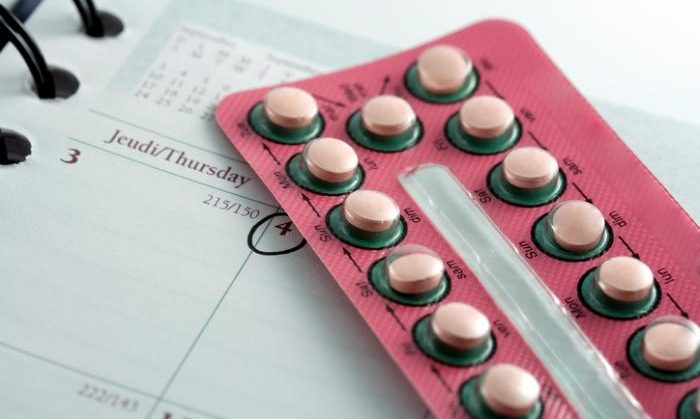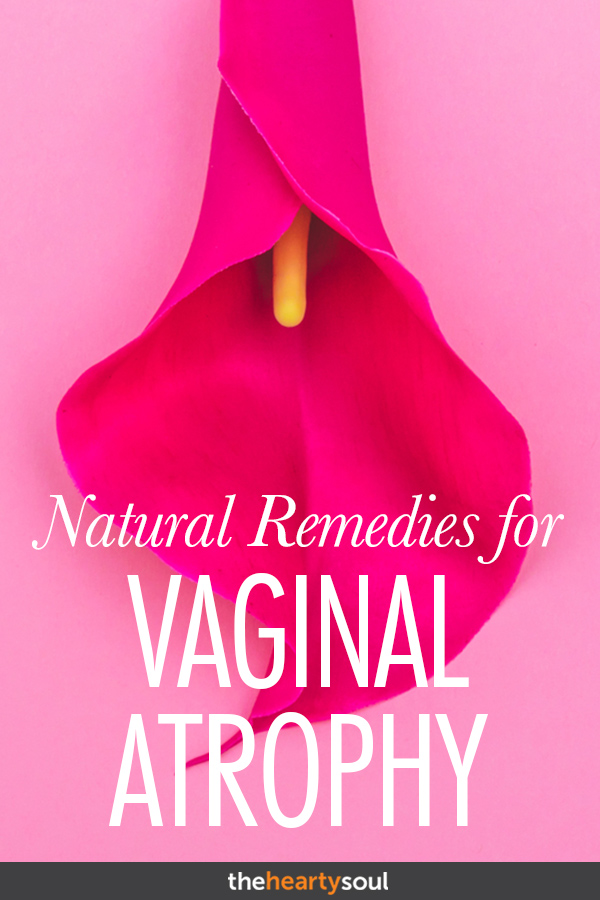Vaginal atrophy is inflammation, dryness, and thinning of the vaginal walls. The condition is also known as atrophic vaginitis. There are many forms of treatment for vaginal atrophy. This article examines some natural remedies, lifestyle changes, and medical treatments that can help.
Symptoms of Vaginal Atrophy
The symptoms of vaginal atrophy can vary and a woman will not necessarily experience all of them at the same time. They include:

- Vaginal dryness or itchiness
- Vaginal discharge
- Loss of libido
- Discomfort during intercourse
- Decreased lubrication during intercourse
- Bleeding after intercourse
- Frequent urinary tract infections
- Pale and thin appearance of the vagina
- Tightening or shortening of the vagina
- Needing to urinate more often
Causes

Some contraceptives, including the combined pill, may reduce estrogen levels which can cause vaginal atrophy. Vaginal atrophy can happen at any age, although it most commonly affects women during and after menopause, when the ovaries begin to produce less estrogen.
Estrogen is a female hormone that is responsible for a woman’s sexual development and helps control her menstrual cycle. It helps support bone health and can affect the skin and other tissues in the body. Estrogen can also affect the brain and impact on a person’s mood.
Pre-menopausal women with medical conditions that affect the levels of estrogen in the body can also develop vaginal atrophy.
The main cause of vaginal atrophy is reduced estrogen levels. Estrogen levels can be reduced by:
- Certain types of contraceptives, including the contraceptive injection and the combined pill
- A lack of arousal prior to intercourse leading to nonproduction of a woman’s natural lubricant
- Breastfeeding or childbirth
- Hormonal cancer treatments, chemotherapy, and radiotherapy to the pelvic area
- Diabetes or Sjögren’s syndrome, in which the glands in the body that produce fluid are attacked by the immune system
Editor’s Note:
In order to shed some better light on this uncomfortable condition before jumping into the various ways you can help treat it at home, we thought it was important to share the perspective of Louise Mazanti, a London-based sex therapist who’s helped more than her fair share of women and couples enjoy sex again.
Mazanti points out that although a lot of women will (naturally) feel much less inclined to be intimate with their partners when they experience dryness, discomfort or pain, being sexually active can actually help reverse vaginal atrophy! “It is very important that we have a healthy sex life with a partner or with ourselves,” she says.
“People very often say, ‘I don’t have a sex life because I don’t have a partner.’ But forget about that and have a sexual relationship with yourself. It’s about using massage and touching the tissue so that it becomes alive, the blood flows and the tissue becomes elastic. It is really about exercising the tissue.”
Furthermore, Mazanti encourages the people who seek her help not to ignore problems in the bedroom (at any age!): “When your ability to have sex and your desire to have sex decreases, it is a massive change in identity.”
So with all of this in mind, try not to let changes in your body stop you from enjoying a healthy sex life- you can use these tips to help you along the way.
Natural Remedies for Vaginal Atrophy

- Giving up smoking: Smoking decreases estrogen levels and increases the risk of developing vaginal atrophy, as well as other conditions such as osteoporosis.
- Staying sexually active: Sexual activity increases the flow of blood to the genitals, which in turn helps keep them healthy. It is important for a woman to allow herself enough time to become sexually aroused.
- Avoiding perfumed products such as powders, soaps, and deodorants. It is important to also note that certain lubricants and spermicides can irritate the vagina and cause dryness.
- Getting regular exercise and physical activity aids hormone balance.
- Keeping well hydrated.
Diet and vaginal atrophy
A number of diet tips and supplements have been suggested as alternative treatments for vaginal atrophy. At present, there is little evidence from scientific research to support these claims. People with vaginal atrophy should discuss any herbal supplements or dietary changes with their doctor before making any lifestyle changes.
Natural lubricants
A number of natural lubricants may help to relieve the symptoms of vaginal atrophy. These include:
- Jojoba
- Coconut oil
- Aloe vera
- Vitamin E suppositories stimulate the normal vaginal mucosa and help prevent infections
Complementary treatments
Probiotics are bacteria that are considered healthy for the human body. Research suggests that probiotics may help relieve the symptoms of vaginal atrophy.
Some women with vaginal atrophy may also develop urinary problems and probiotics are also thought to be helpful in alleviating these symptoms.
Conventional Forms of Treatment
As well as natural remedies and lifestyle changes, there are several medications for treating vaginal atrophy. Many of the following are available over the counter:
- Water-based, glycerine-free lubricants help reduce discomfort during sex.
- Vaginal moisturizers can be applied every 2 to 3 days. Their effect lasts longer than a lubricant.
- Topical estrogen cream applied directly inside the vagina relieves symptoms more quickly than if taken orally. It also reduces the bloodstream’s exposure to estrogen.
- Oral estrogen.
- An estrogen ring inserted into the vagina releases estrogen.
- Systemic estrogen therapy is available as a skin patch, an implant under the skin, tablets, or a gel applied directly to the skin.
Systemic estrogen therapy has some potential side effects. These include:
- Breast tenderness
- Headaches
- Nausea
- Indigestion
- Stomach pain
- Vaginal bleeding
There may also be an increase in the risk of developing blood clots and breast cancer with this type of treatment. However, the benefits usually outweigh the risks.
What effect does a history of breast cancer have on treatment options?
A woman with a history of breast cancer should consult her doctor regarding any potential treatment. Estrogen can be harmful for women with a history of breast cancer. If the cancer is hormone-sensitive, estrogen may increase the risk of it coming back. For this reason, systemic estrogen therapy is not usually recommended.
Treatments that can be used by women who have or have had breast cancer include:
- Nonhormonal treatments, such as moisturizers and lubricants
- Low-dose vaginal estrogen may be used if nonhormonal treatments have failed to relieve the symptoms of vaginal atrophy
When to see a doctor
Many women are embarrassed about vaginal atrophy. However, it is a very common condition that can be treated in a number of ways with good results. Medical advice should be sought if:
- Symptoms are severe and interfering with day-to-day life
- Pain is experienced during intercourse, which is not relieved by vaginal lubricants
- There is any bleeding, burning, or discharge is present
- Other symptoms, such as night sweats and hot flushes are present


